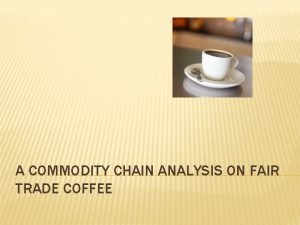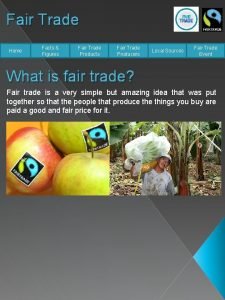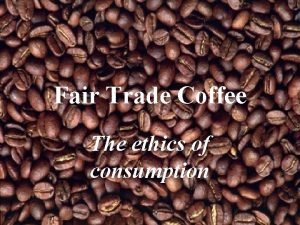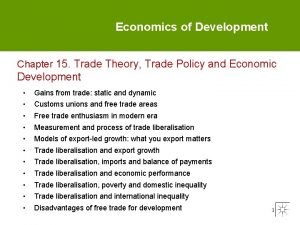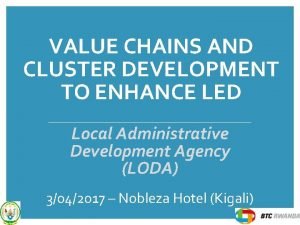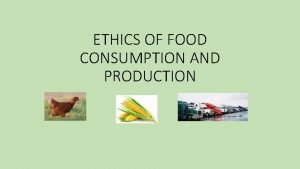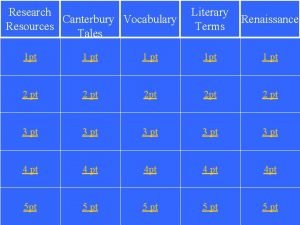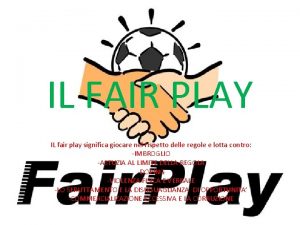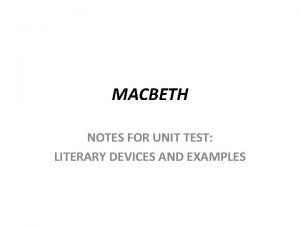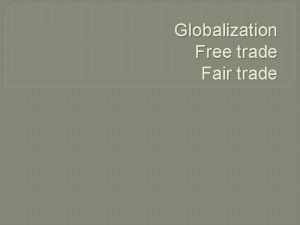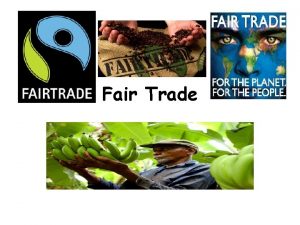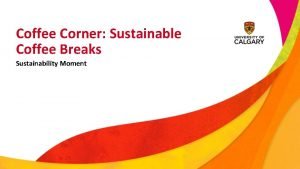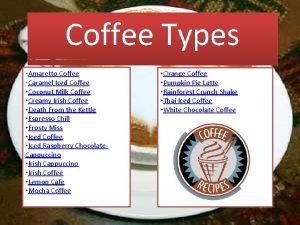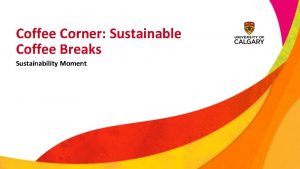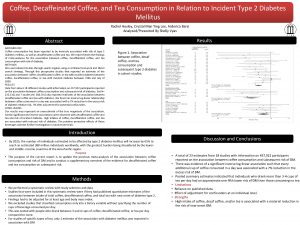Fair Trade Coffee The ethics of consumption Scope











- Slides: 11

Fair Trade Coffee The ethics of consumption

Scope • “Ethical” consumption • The problem at hand → coffee – What are the options for the distributor? • Our ethical solution → utilitarian view

The Concept • The Fair Trade label is a guarantee of “fair compensation” for producers • You pay more for the product • Currently being applied to coffee, tea, chocolate, and fruit (possibly other foodstuffs) • Will it work?

The Numbers • 82% of consumers in US claimed “corporate citizenship” was influential in their buying BUT… • Just over 1% of coffee imported to US is Fair Trade certified • Not a problem of supply → demand is insufficient • That is only for coffee…

How much are those Ethics in the window? • “We live in a society where everybody feels guilty” • What is consumers’ willingness to pay for ethics? • 50 cent premium for coffee v $5000 premium for a car • How many “ethical” purchases make you ethical? • Are the less affluent then less ethical?

Fair Trade Label on Coffee • • • Advantages Consumer choice to purchase fair trade sourced coffee Encourages more companies to use ethical resources/process Potential for increased sales Potential benefit to brand reputation Disadvantages Product more expensive Subscription cost to Fair Trade label Reliability of label accuracy – who guarantees the fairness? A product that doesn’t have the label can still part take in fair trade – they may not buy the label Subjective nature of fair trade

Without a Fair Trade Label • • • Advantages Not imposing one set of views onto another Developing countries receive business and benefits Consumers benefit from cost leadership No cost of monitoring of label integrity Disadvantages Unethical exploitation may occur Consumers less aware of unethical behaviours

Dividing Products Advantages • Consumers can choose to make opinions about different sources • Cost/profits allocated efficiently Disadvantages • Non-fair trade product cannibalises fair trade product through brand association • Need to advertise why products are separated – through fair trade label or otherwise

Is there a Dilemma? • Market forces at work • “Fair price” is that determined by the buyer and seller • If coffee producers want more money they can form an OPEC-like cooperative • ‘Ethical soundness’ of a purchase is a product feature that comes at a premium to the buyer

Our Utilitarian ‘Solution’ • Pleasure v pain → aim is to generate the most pleasure… • Label it all as Fair Trade, making no changes to supply system • The increased pleasure of millions of consumers thinking they have consumed ethically v No additional pain for producers → they were already paid this wage

Is this solution Ethically Sound?
 Fair trade coffee supply chain
Fair trade coffee supply chain Fair trade facts
Fair trade facts What is fair trade coffee why is it an ethical issue
What is fair trade coffee why is it an ethical issue Fair trade not free trade
Fair trade not free trade Starbucks vs sardarbuksh case
Starbucks vs sardarbuksh case Vertical integration
Vertical integration Ethics of food production and consumption
Ethics of food production and consumption Syntax literary devices
Syntax literary devices Foul is fair and fair is foul literary device
Foul is fair and fair is foul literary device Fair play ne demek
Fair play ne demek Macbeth stylistic devices
Macbeth stylistic devices Examples of fair is foul and foul is fair in macbeth
Examples of fair is foul and foul is fair in macbeth
